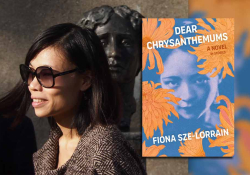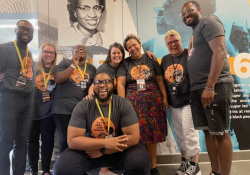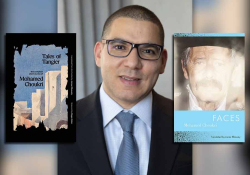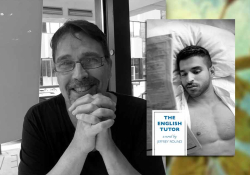Poking at Memory: A Conversation with Rocío Cerón and Anna Rosenwong
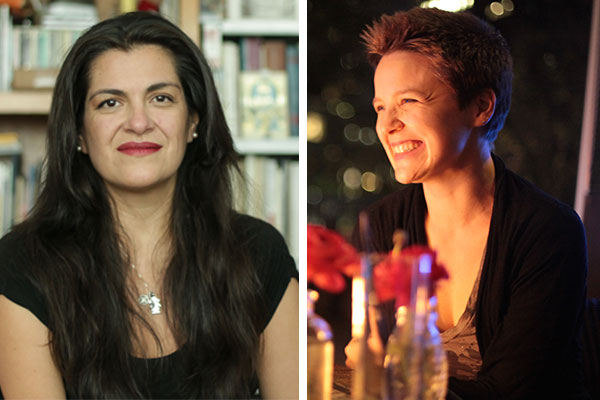
Anna Rosenwong’s translation of Rocío Cerón’s Diorama won the 2015 Best Translated Book Award for Poetry. Here, translator and author correspond with Paul Holzman about the inception of the project and translating a collective Latin American voice for an anglophone audience.
Paul Holzman: Where and how did your relationship begin?
Rocío Céron: We first met in the halls of the Feria Internacional del Libro de Guadalajara many years back. The poet José Eugenio Sánchez introduced us. But it wasn’t until Mark Weiss sent an email to Anna saying that I was looking for a translator for Diorama that our relationship began.
PH: Who’s idea was it to translate Diorama into the English?
RC: It was my idea.
PH: My tendency as a reader is to adhere to the familiar and recognizable. Therefore, the Guaraní refrain in “Detail of a Plate Cylinder (Section)” drew me in, since I hear it being spoken from time to time here in the streets of Buenos Aires and also have a few friends who speak it. So, Rocío, why Guaraní?
RC: Because it is always said that Paraguay does not exist, which is a way of saying that it is a tiny country, outside of the orbit of the more well-known countries like Brazil, Argentina, Perú, or Mexico. But, in reality, it is a country that has the grand culture that is Guaraní, and its language is very rich. I wanted it to be present in the book, so I asked a Paraguayan writer and friend, Cristino Bogado, to translate a few of my verses into the Guaraní. It is an homage of sorts to his culture and his homeland, and to the presence of those who are not so visible but form part of the complex horizon of Latin America.
PH: It’s a great homage to include Cristino’s translation in Diorama. As reader, I was delighted to encounter the Guaraní in written form.
Despite my proximity to Paraguay and my addiction to browsing through the numerous bookstores here in Buenos Aires, my exposure to Paraguayan authors is minimal. To be honest, I have never intentionally looked for Paraguayan poetry or literature. Is this what you mean when you say that Paraguay does not exist, that it is omitted from conversations about South America and Latin America?
RC: Exactly, Paul. Paraguay is almost like an imaginary country; its culture or literature is not well known, even though it is rich. And the Guaraní culture has a very particular relationship with the earth and the sense of community.
PH: This question pokes at the notion of memory. In your book I found it difficult to decipher between the personal and the collective. That’s to say, when I decided in my mind that it was your voice speaking as an individual, as a poet, an image, an allusion, or a combination of words would then disrupt me. The disruption was a collective voice that I think can be heard throughout Latin America. Could it be that Diorama is a conversation between your personal voice and the collective voice of Latin America?
RC: I believe that all personal voice, in poetry, is a collective voice; it is a voice that interweaves our subjective spaces and those of the tribe, collective spaces. Diorama, I have said on a few occasions, is a listening book; that’s to say, a book that is influenced by the voices, images, and truths of a nation, a continent. Thus the voices, like in a symphony concert, mix; they meet in a polyphonic composition.
PH: Now that Diorama is available for anglophones, I wonder how readers will experience the book if they’re not familiar with the history and present reality of Latin America. Anna, did this ever cross your mind while translating Diorama? If so, how did you approach this as a translator? If not, what were some things that you wondered about in regard to potential English readers while you translated Diorama?
Anna Rosenwong: It very much did cross my mind. In spite of my own relative familiarity with Latin America, there was a lot of history and reality in Diorama that I sensed the contours of but didn’t have sufficient context to fully understand. I dug into some of it for my own edification, but that exploratory work didn’t much affect the final English version. Translation often involves a certain degree of clarification, which can be appropriate, but I felt quite strongly that an incantatory text like Diorama was best served by honoring the thickness of its allusions.
Given the place of experimental and foreign poetry in English, my potential readers were always going to be a highly self-selecting group. I chose to trust them to approach the text on its own terms and to allow it to illuminate the limits of their knowledge rather than butting their heads against it in an effort to lay bare any kind of ethnography lesson.
PH: Thank you both for your time, and congratulations! Diorama is a great book, and I’m glad it won the Best Translated Book Award.
July 2015
Rocío Céron (b. 1972, Mexico City) creates multimedia projects with her poetry. Her books include Basalto (2002), Imperio/Empire (2009, Tanya Huntington, tr.), Tiento (2010), and Diorama (2012). Read, see, and listen to her work at rocioceron.com
Anna Rosenwong is a translator, poet, editor, and educator. In addition to Diorama, her translations include José Eugenio Sánchez’s Suite Prelude a/H1N1 and the forthcoming Climax with Double Cheese as well as an original collection of poetry, By Way of Explanation. She is the translation editor of Drunken Boat. Her literary and scholarly work has been featured in World Literature Today (Sept. 2013), Kenyon Review, Translation Studies, the St. Petersburg Review, Pool, and elsewhere.
